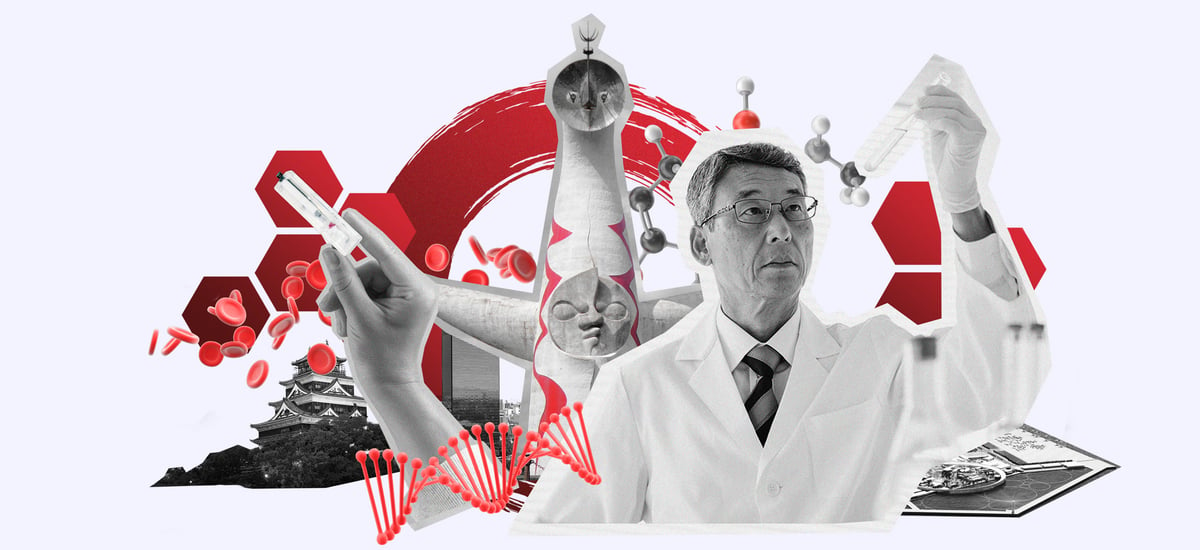
Startups Ripening in the Osaka/Kansai Life Science Cluster
Hirokazu Sugihara remembers his father taking him to the Osaka Expo in 1970. As an elementary student, he was excited to enter the iconic Tower of the Sun. Still standing and instantly recognizable on journeys to the local airport, the monument has since become a powerful symbol for those of Sugihara’s generation.
“When I learned more than fifty years later that the Expo is returning to our city, I was determined to be a part of it. I am honored to have been chosen to exhibit our venture’s Osaka-born technology to the world,” says Sugihara, CEO of Immunosens, a biotech startup founded in Osaka in 2018.
His company specializes in electrochemical immunoassay devices which can detect biomarkers such as genes, hormones, cytokines, proteins, viruses and bacteria via electronic signals to diagnose disease and other patient conditions.
Using a proprietary technology, named “GLEIA,” involving gold nanoparticles, the company’s device can achieve diagnostic results in ten minutes compared to conventional immunoassay tests which could take several hours. The technology is also compact, fitting into the palm of the hand and to be priced competitively so even smaller clinics and perhaps even private households would be able to afford it.
These features make the innovation attractive for point of care testing. In emergency and remote settings, quick and accurate diagnosis are vital to enable timely clinical interventions needed for conditions such as cardiac events, infectious diseases, and metabolic disorders.
“During our exhibition, we are looking very much forward to building both business and academic ties with participants from across the globe,” says Sugihara.
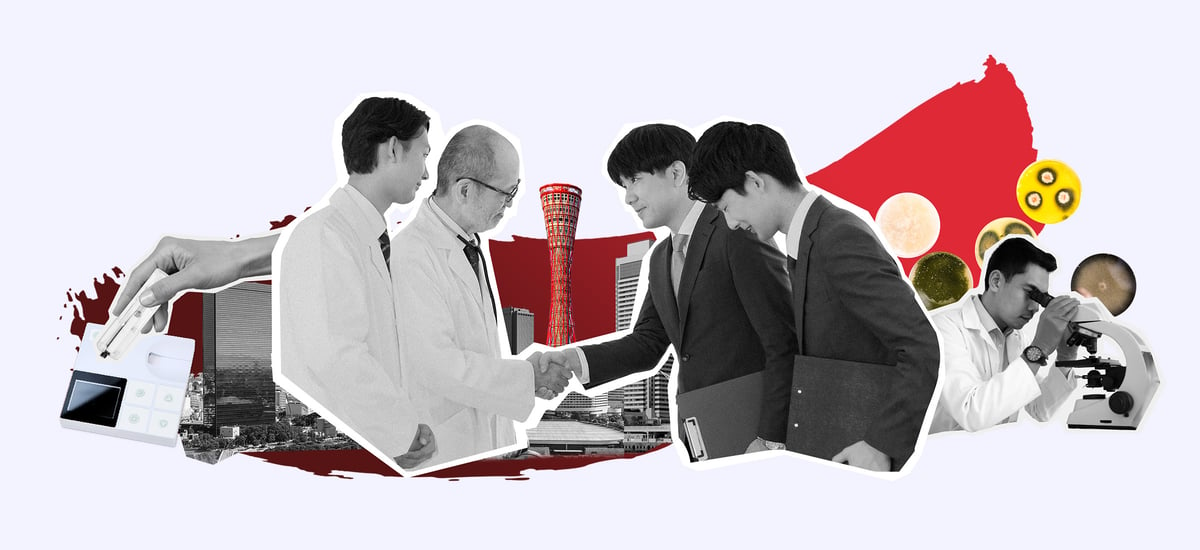
The Osaka-based venture is only one of many startups with cutting-edge biotech innovations that can contribute to the health of billions, some of which will be showcased at Expo 2025 hosted by Japan this spring.1
The Kansai region, comprising the major urban centres of Osaka, Kyoto, and Kobe as well as neighbouring prefectures, is a huge market with a GDP of about $840 billion (as of 2020), between the Swiss and Polish economies (as of 2023).2 It is also home to much of Japan’s life science industry. Kansai accounts for about one-third of the domestic market share in pharmaceutical and quasi-pharmaceutical products.3
A concentration of research universities and institutes – including Nobel-prize winning research on areas like regenerative medicine at Kyoto and Kobe Universities, for example – forms the core of this health care cluster. Close collaboration between research and industry, plus generous public sector support, has nurtured a vibrant ecosystem for diverse life science sectors.4
Immunosens is part of this trend.
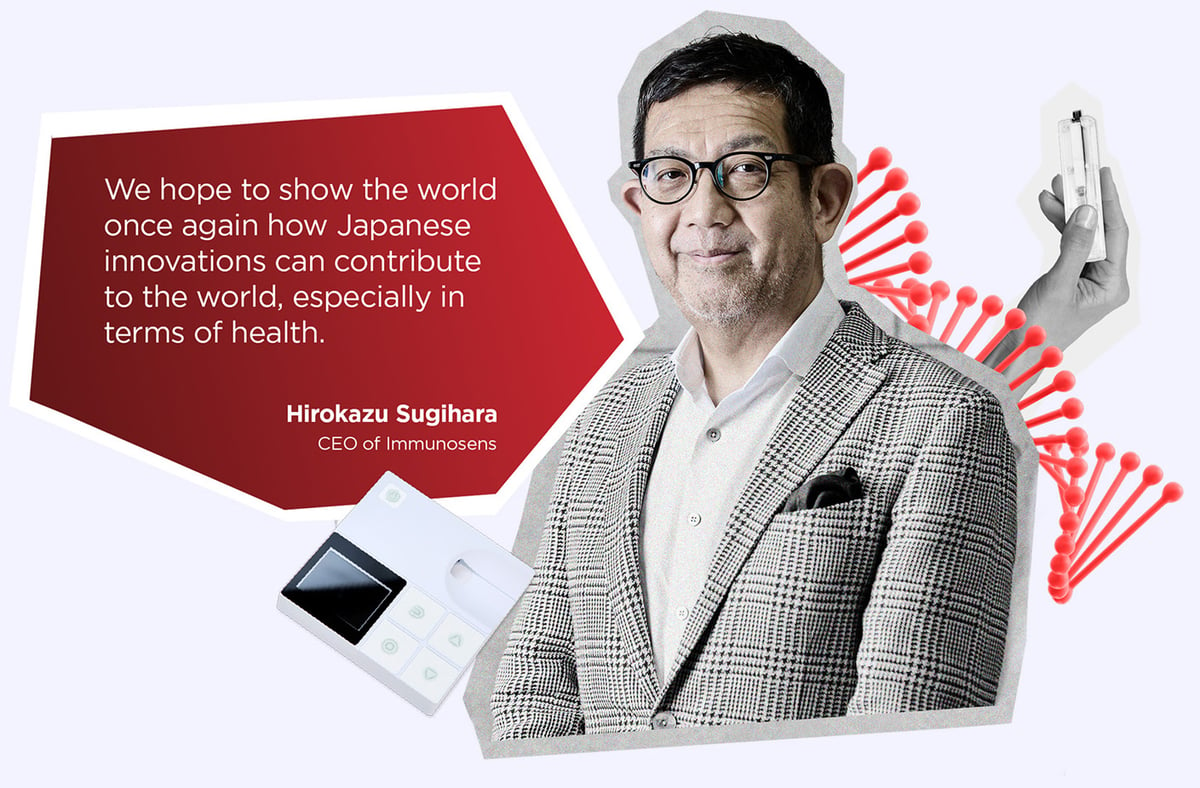
“We are a venture out of Osaka University based on the biosensor and bioelectronics research of Professor Eiichi Tamiya, a pioneer in the field,” says Sugihara. “I previously worked for electronic medical device companies – many are based in the Kansai region – and from this background, I was invited to manage the startup.”
Receiving funding from national and local public entities as well as private capital, Sugihara’s venture has grown rapidly. When prototyping his device, he benefitted from the numerous small factories – so-called machi koba – in the region, renowned for rapid turnaround and flexibility. Such prototype creation and mass-production trials are provided, for example, by Kyoto Shisaku Net (or Kyoto prototype network), which are also utilized by foreign companies.5
“It is a region where, as a startup, you can act nimbly and rapidly turn the PDCA cycle,” Sugihara adds.
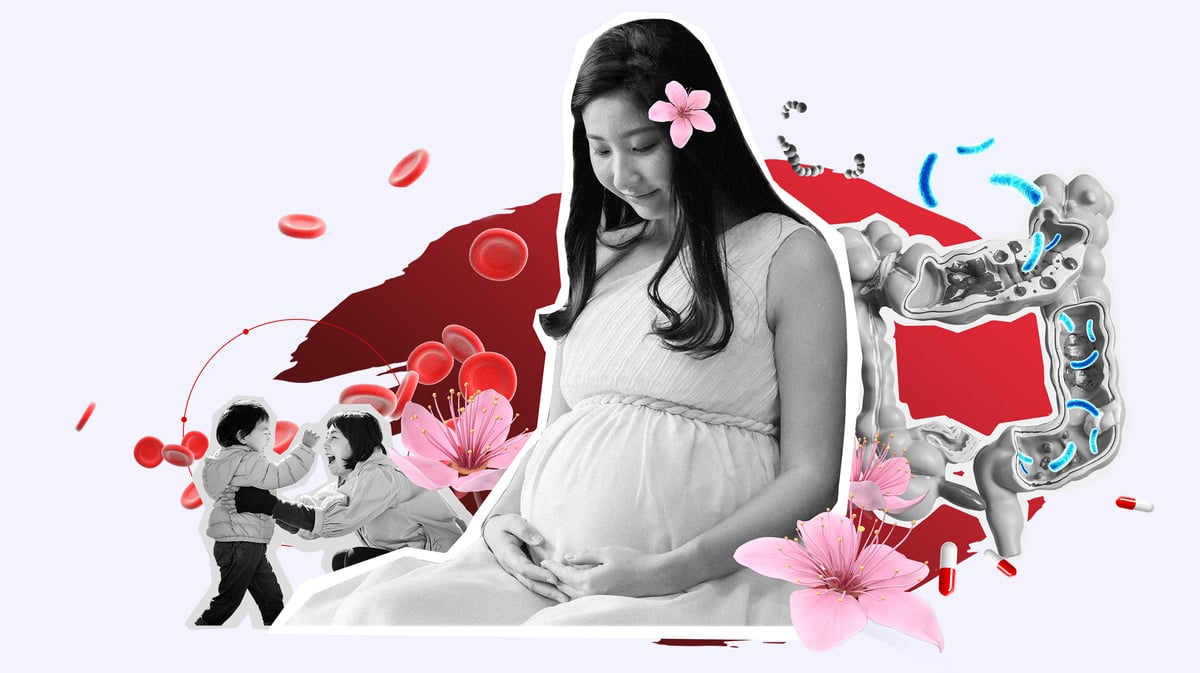
Another life science startup planning to exhibit at the Expo is Bacterico. Natsuki Suganuma, a researcher-turned-entrepreneur, founded the company in Osaka in 2020 with a vision of enhancing human health through gut microbiome optimization.
“Research continues to demonstrate that gut microbiome fluctuate with an individual’s mental and physical conditions, playing a crucial role in overall health,” explains Suganuma. “Our mission is to leverage the power of gut microbiome to build a healthier, happier world.”
.png?width=1200)
Her startup, composed of doctors, dietitians, pharmacists, midwives, and researchers like herself who have worked for various companies, has developed tools to analyze individual gut microbiome. Based on these results, registered dietitians provide personalized nutritional recommendations to optimize each client's gut health.
Suganuma is particularly interested in developing personalized gut microbiome care for women before and after pregnancy, since it has been found to significantly affect pregnancy outcomes, fetal development, and maternal health.
“Before, when working at a company developing yoghurt and supplement products, I realized that no single product could effectively serve everyone—personalization was clearly the future of wellness,” says Suganuma. “So, at the Expo, we will be exhibiting our unique solutions for order-made drug-formulations for gut health reflecting individual genes.”
Although not a native of Osaka, Suganuma has found the local banks, academic network, and public sector very enthusiastic, almost family-like.
“Unlike Tokyo, Kansai is a smaller world. People are happy to connect you to others and collaborate. And there is a warm kind of culture of support here,” she adds.
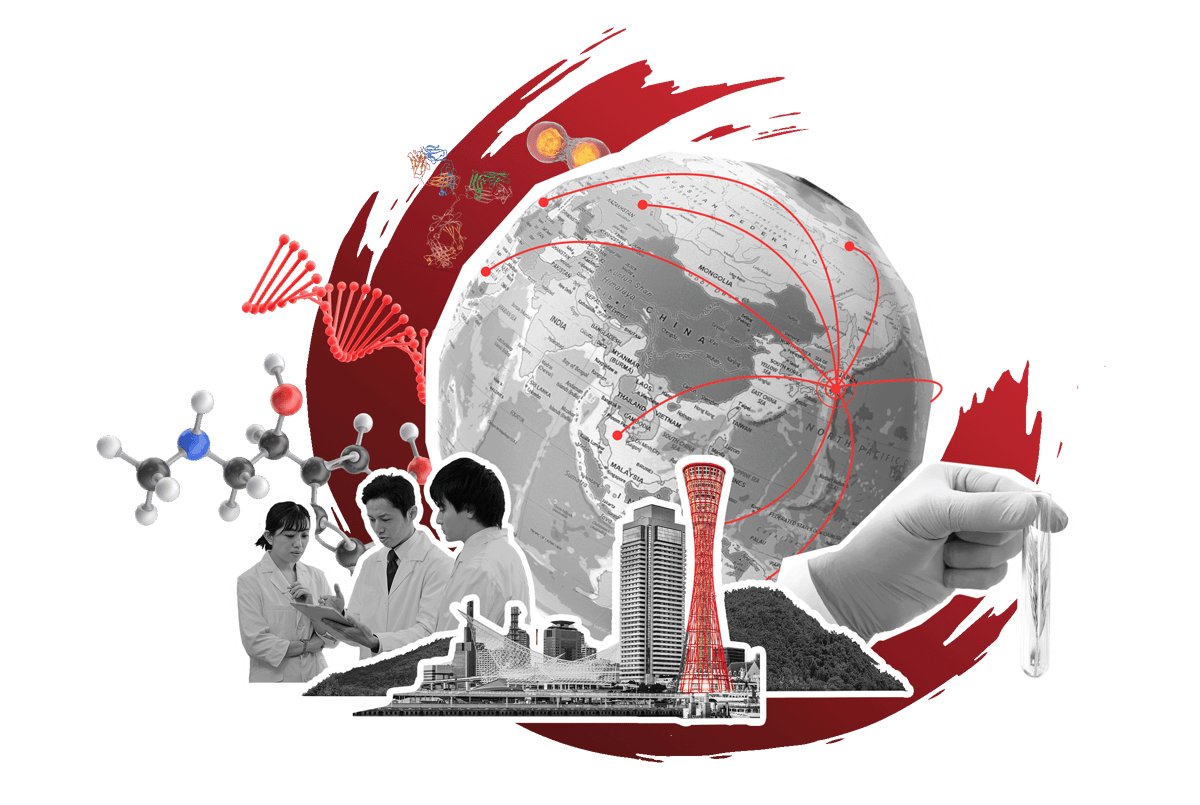
Both CEOs see the Expo as a catalyst for their international expansion plans.
“I hope our exhibition at the Expo will give us connections to the rest of the world and act as a catalyst for our international expansion,” says Suganuma. She believes market testing her solutions in Japan, where customer expectations for quality control are famously demanding, is an effective way to prepare for other Asian and Western markets.
Beside the Expo, international engagement in healthcare innovation is ongoing at other sites. These include the recently opened international hub for healthcare innovation, the Nakanoshima Qross, in central Osaka, which brings together medical institutions and companies to advance industrialization of future medicine.6
An hour by train from Osaka and only ten minutes from Kobe Airport lies Japan’s largest biomedical cluster on the artificial island in Kobe Port. The Kobe Biomedical Innovation Cluster (KBIC) hosts some 370 companies, universities, research institutes and specialized hospitals, along with a growing number of international partners, both new startups and leading multinationals in healthcare.7
For researchers and entrepreneurs, the ambition of reaching out and making a difference to the world remains unchanged.
As Sugihara says: “Things have certainly changed for Japan and the world from the last Expo, but we hope to show the world once again how Japanese innovations can contribute to the world, especially in terms of health.”
1 Kansai 2 Kansai, World Bank 3 Kansai 4 Kansai 5Kansai 6 Nakanoshima 7FBRI
